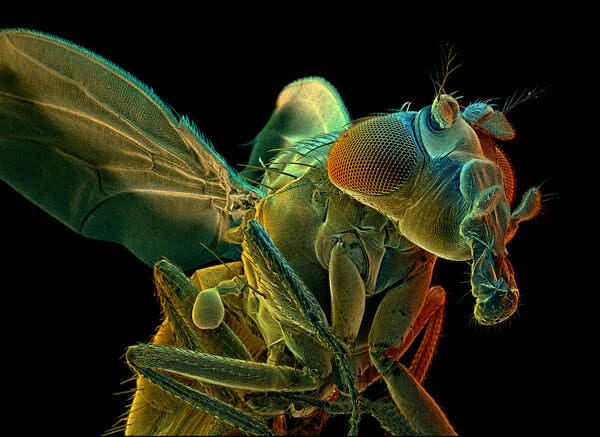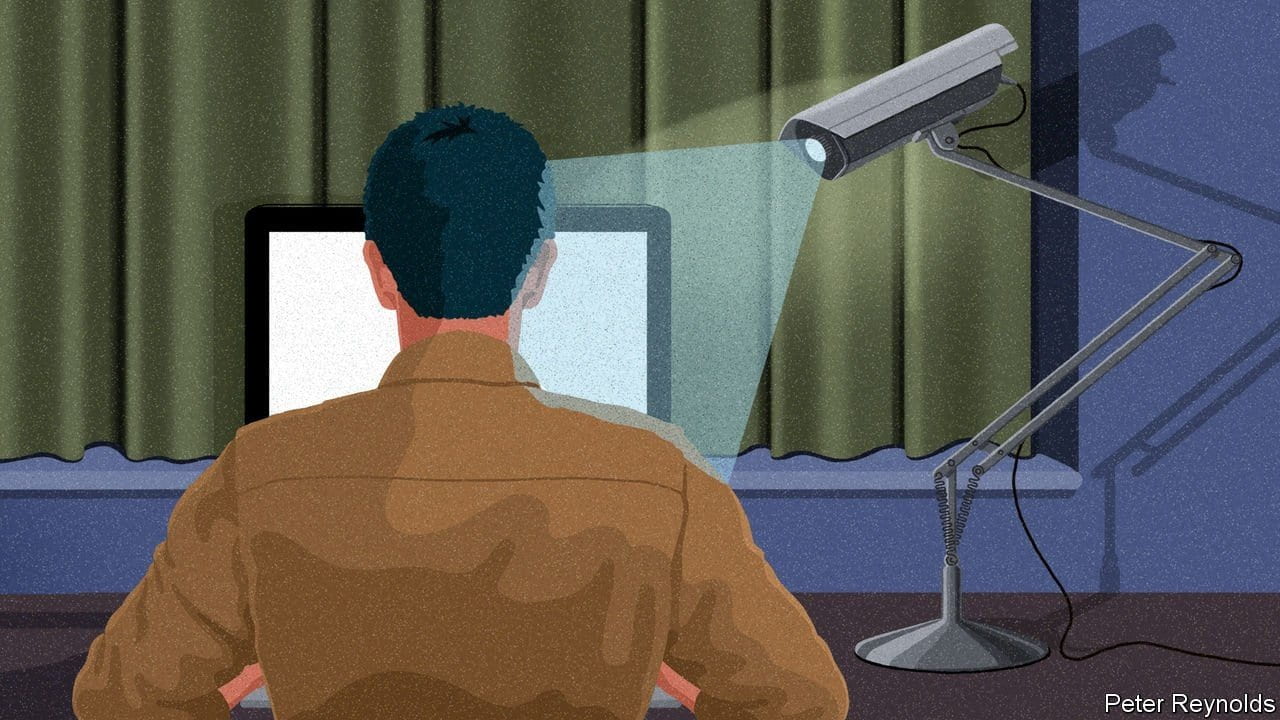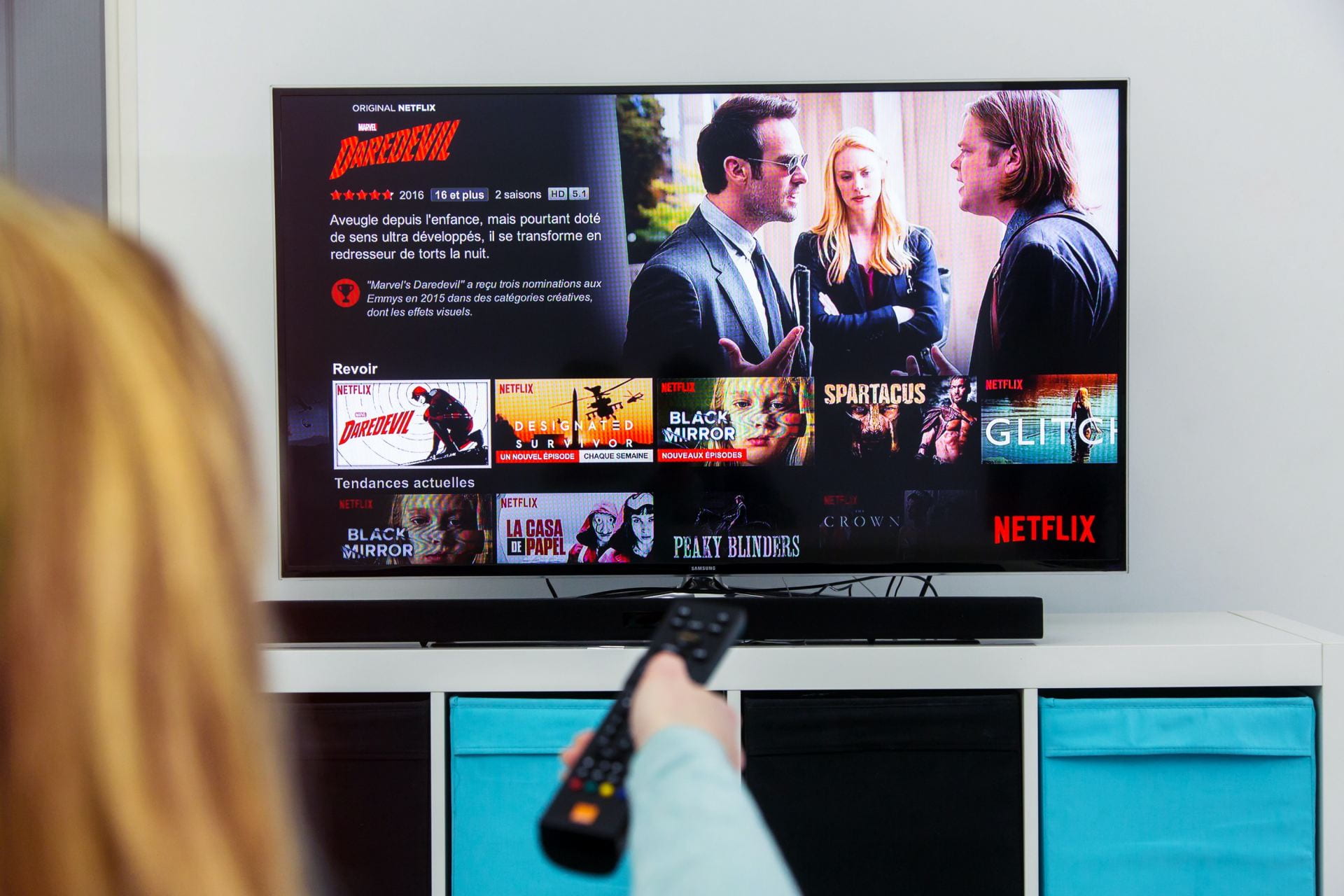The Long Search for a Brain Computer Interface That Speaks Your Mind
The trick is to use data from the brain to synthesize speech in real time so users can practice and the machine can learn. New brain computer interface systems are getting there.
Source: The Long Search for a Brain Computer Interface That Speaks Your Mind
Astroworld and the trickiness of tragedy blame games
Social media doesn’t always help us make sense of horrific events.
An 8-Year-Old Explains the Metaverse
“One minute you get scammed, another minute you’re having the best time of your life, making billions of dollars.”
The complicated promise of Amazon’s space internet
At the top of an Amazon press release sent out this week , there’s an uncanny image. It’s a rocket imprinted with an American flag and, above that, Amazon’s smiling logo, blasting off to the heavens. The company is officially taking its business to space, and Jeff Bezos isn’t even providing the ride.
Google’s Project Starline Wants to Turn You Into a Hologram
Video: Google Over the past several years, Google has been working hard to craft software experiences that make you feel like you’re present with another human being, even if they’re several time zones away. On one end of the spectrum is boring Google Meet , the company’s Zoom competitor.
But nothing within that gamut was cutting it for Clay Bavor, the high-energy Googler who heads up the company’s augmented- and virtual-reality efforts. He wanted full-on photo-realistic, volumetric video meetings that make it look, sound, and feel like the other person is sitting across the table from you—no headset required.
Source: Google’s Project Starline Wants to Turn You Into a Hologram
Facebook’s new Meta logo is a graphic trope that was trendy in 2008
The Facebook rebrand to Meta brings with it a new stock symbol , new social media handles , and heavy critiques of the company’s new logo. Graphic design critics were predictably abuzz as soon as CEO Mark Zuckerberg revealed the wordmark for Meta, Facebook’s new corporate brand, at the tail end of his 80-minute keynote at the Connect conference on Oct 28. “The word ‘meta’ comes from the Greek word [μετά] meaning ‘beyond,’” he explained, revealing an animated symbol that resembles an infinity symbol. “For me, it symbolizes that there is always more to build.” The logo has already been compared to a pretzel, a Pringle chip, a thigh master , IBM’s design thinking loop , Microsoft Visual Studio’s old avatar , and inevitably, a phallus .
Source: Facebook’s new Meta logo is a graphic trope that was trendy in 2008
Is Your Exoskeleton Ready for Primetime?
While at the mention of exoskeletons—or wearable mobile apparatuses, as they are called in marketing brochures—scenes of Tony Stark in his Iron Man armor elegantly zipping and hovering start to flicker in our minds, we often forget the test scenes where he struggles to control his flight and shoots himself straight into a wall.
Zuckerberg Announces Fantasy World Where Facebook Is Not a Horrible Company
Moments before announcing Facebook is changing its name to “Meta” and detailing the company’s “metaverse” plans during a Facebook Connect presentation on Thursday, Mark Zuckerberg said “some people will say this isn’t a time to focus on the future,” referring to the massive, ongoing scandal plaguing his company relating to the myriad ways Facebook has made the world worse. “I believe technology can make our lives better.”
Source: Zuckerberg Announces Fantasy World Where Facebook Is Not a Horrible Company
Why Scientists Have Spent Years Mapping This Creature’s Brain
Flies are capable of sophisticated behaviors, including navigating diverse landscapes, tussling with rivals and serenading potential mates. And their speck-size brains are tremendously complex, containing some 100,000 neurons and tens of millions of connections, or synapses, between them.
Since 2014, a team of scientists at Janelia, in collaboration with researchers at Google, have been mapping these neurons and synapses in an effort to create a comprehensive wiring diagram, also known as a connectome, of the fruit fly brain.
Source: Why Scientists Have Spent Years Mapping This Creature’s Brain
Why is the idea of ‘gender’ provoking backlash the world over? | Judith Butler
The attacks on so-called “gender ideology” have grown in recent years throughout the world, dominating public debate stoked by electronic networks and backed by extensive rightwing Catholic and evangelical organizations. Although not always in accord, these groups concur that the traditional family is under attack, that children in the classroom are being indoctrinated to become homosexuals, and that “gender” is a dangerous, if not diabolical, ideology threatening to destroy families, local cultures, civilization, and even “man” himself.
Source: Why is the idea of ‘gender’ provoking backlash the world over? | Judith Butler
The grand unified theory of aesthetic vlogging
While we all occasionally note the way information and images are presented, most people tend to prioritize function over aesthetic value. But not aesthetic vloggers. Viewing and evaluating the internet as chiefly an aesthetic object — how aesthetically pleasing, beautiful or cute something is displayed/presented — is what unifies them.
Gone are the days of endless customizability (Myspace, Tumblr, Neopets, Live Journal), so aesthetes are tasked with creatively filling the content void left by mid-to-late aughts fashion bloggers (Lookbook.nu, The Sartorialist, Style Bubble, etc.) and 2010s beauty gurus.
Source: The grand unified theory of aesthetic vlogging – TechCrunch
US retail giants pull Chinese surveillance tech from shelves
U.S. retail giants Home Depot and Best Buy have pulled the Chinese video surveillance technology makers Lorex and Ezviz from their stores over links to human rights abuses.
Source: US retail giants pull Chinese surveillance tech from shelves – TechCrunch
Leaked files show Facebook is in crisis mode over losing young people
Earlier this year, a researcher at Facebook shared some alarming statistics with colleagues. Teenage users of the Facebook app in the US had declined by 13 percent since 2019 and were projected to drop 45 percent over the next two years, driving an overall decline in daily users in the company’s most lucrative ad market.
Source: Leaked files show Facebook is in crisis mode over losing young people
Remote work is bringing the city to the suburbs
In the spring of 2020, many of the typical draws to cities — plays, nightclubs, restaurants — shut down. Space took on a premium, as small apartments close to others felt particularly claustrophobic. All of a sudden, a big home in the suburbs for the same monthly price as a tiny apartment in the city got a whole lot more attractive. The lifestyle also seemed safer, as you could travel in the isolation of your own vehicle and play in personal green spaces with less fear of infection. More companies than ever are allowing employees to work from home, and studies say that between 13 and 45 percent of the workforce is now remote some or all of the time.
Brazil’s embrace of facial recognition worries Black communities
On a crisp winter’s morning in June in Mata de São João, fourth graders hopped off the bus onto the dusty track in front of João Pereira Vasconcelos school. It had been a long two-year break from the classroom due to Covid-19, but as the students filed in through the school’s run-down entrance, they received an unexpected welcome.
Source: Brazil’s embrace of facial recognition worries Black communities
Tesla pulled its latest ‘Full Self Driving’ beta after testers complained about false crash warnings and other bugs
Tesla’s decision to test its “Full Self Driving” advanced driver assistance software with untrained vehicle owners on public roads has attracted scrutiny and criticism , and that was before this latest release. Version 10.3 began rolling out on Saturday night / Sunday morning with a long list of release notes .
This startup is creating personalized deepfakes for corporations
Deepfake tech, which allows a user to create highly realistic simulations of a real person, has been widely associated with pornography and fears of political misinformation. (Rephrase.ai distances itself from the term “deepfake,” and calls its technology “facial reenactment”). But it’s steadily gaining a toehold in the corporate world. Rather than going through the arduous process of finding a film crew, booking an actor, hiring expensive equipment, and spending time on postproduction, brands are trying out platforms where they can simply type in the script to create realistic AI-generated videos.
Source: This startup is creating personalized deepfakes for corporations
What Silicon Valley Gets Wrong about Innovation
To generate local, inclusive prosperity, cities must think beyond tech accelerators and science parks and instead embrace a wider range of innovation strategies.
Why we place too much trust in machines
While many people might claim to be skeptical of autonomous technology, we may have a deep ingrained trust of machines that traces back to our evolutionary past.
Kat Norton’s spiritual journey to becoming a Microsoft Excel influencer
Kat Norton is dancing her way to internet fame—but not in the way you’re probably thinking. On TikTok, where Norton has about 650,000 followers , she has an ulterior motive when she busts a move. To Gary Lee Clark Jr.’s cover of “Come Together” by The Beatles, Norton gyrates as she shows her followers how to combine two separate columns on a spreadsheet.
Source: Kat Norton’s spiritual journey to becoming a Microsoft Excel influencer
The AI oracle of Delphi uses the problems of Reddit to offer dubious moral advice
Got a moral quandary you don’t know how to solve? Fancy making it worse? Why not turn to the wisdom of artificial intelligence, aka Ask Delphi : an intriguing research project from the Allen Institute for AI that offers answers to ethical dilemmas while demonstrating in wonderfully clear terms why we shouldn’t trust software with questions of morality.
Source: The AI oracle of Delphi uses the problems of Reddit to offer dubious moral advice
Governments are finding new ways to squash free expression online
Freedom House, a think-tank, reports that in the past year efforts to control speech online escalated in 30 of the 70 countries it monitors, and receded only in 18 (see map). Many autocrats and would-be autocrats look with envy at China, where the Communist Party has overseen the construction of a walled-off information sphere, within which criticism of those in power can barely be seen or heard. None can copy it exactly, but many are deploying digital tools to curate the information that reaches their citizens.
Source: Governments are finding new ways to squash free expression online
The Chappelle controversy is a test of what kind of workplace Netflix wants to be
Netflix has a workplace culture so distinct that co-founder and co-CEO Reed Hastings wrote a whole book about it . But backlash over comedian Dave Chappelle’s most recent standup special, The Closer , is putting the streaming titan’s culture to the test.
Source: The Chappelle controversy is a test of what kind of workplace Netflix wants to be
Human History Gets a Rewrite
Yes, we’ve had bands, tribes, cities, and states; agriculture, inequality, and bureaucracy, but what each of these were, how they developed, and how we got from one to the next—all this and more, the authors comprehensively rewrite. More important, they demolish the idea that human beings are passive objects of material forces, moving helplessly along a technological conveyor belt that takes us from the Serengeti to the DMV. We’ve had choices, they show, and we’ve made them. Graeber and Wengrow offer a history of the past 30,000 years that is not only wildly different from anything we’re used to, but also far more interesting: textured, surprising, paradoxical, inspiring.
Source: Human History Gets a Rewrite
Desperate for Workers, Restaurants Turn to Robots
They can make French fries, mix drinks and even clean toilets, and they never ask for a raise. But they also break down.
A piece of cloth to clean your Apple devices will cost you $19
The Apple-branded cloth, made of unspecified nonabrasive materials, will be available to purchase separately. Other than having an Apple logo stamped on it, it’s unclear how the cloth is any different from a typical microfiber cloth that you can get for a fraction of the price.
Source: A piece of cloth to clean your Apple devices will cost you $19
Hollywood averted its first streaming strike
The union had threatened that 60,000 of its members would go on strike Monday after weeks of contract negotiations. Streaming rates and residuals were just a small part of the union’s catalog of demands. But ultimately, this labor dispute was all about streaming.
Raya and the Promise of Private Social Media
The app has created a space free of the problems that plague the rest of the Web, but only by leaving almost everybody out.
Facebook Hides How Terrible It Is With Hate Speech
In public, Facebook seems to claim that it removes more than 90 percent of hate speech on its platform, but in private internal communications the company says the figure is only an atrocious 3 to 5 percent. Facebook wants us to believe that almost all hate speech is taken down, when in reality almost all of it remains on the platform.
Source: How Facebook Hides How Terrible It Is With Hate Speech
All risk, no reward: Why Microsoft gutted LinkedIn in China
Why deal with political risk when your product isn’t working anyway?
Source: All risk, no reward: Why Microsoft gutted LinkedIn in China
Lost in translation? The one-inch truth about Netflix’s subtitle problem
Subtitling is an essential art form. So why, as the streaming giant scores more global hits with shows like Squid Game and Call My Agent, isn’t it trying harder to find the right words?
Source: Lost in translation? The one-inch truth about Netflix’s subtitle problem
⚠️ Caution! ⚠️ These emoji mean different things in different countries
Emoji are practically a universal part of language now, with chat conversations liberally sprinkled with little pictograms. But just because they’re widely adopted doesn’t mean they’re fully understood.
Source: ⚠️ Caution! ⚠️ These emoji mean different things in different countries
She pulled herself from addiction by learning to code. Now she’s leading a worker uprising at Apple.
Cher Scarlett grew up poor and dropped out of high school. As a teenager, she struggled with addiction, danced as a stripper and tried to overdose on pills. Her ticket to a better life was learning to code. Last year, she became perhaps the least probable member of Apple’s elite software engineering corps.
Source: She pulled herself from addiction by learning to code. Now she’s leading a worker uprising at Apple.
Pentagon Wants AI to Predict Events Before They Occur
Haven’t we seen this film before?
Source: Pentagon Wants AI to Predict Events Before They Occur
How Netflix affects what we watch and who we are — and it’s not just the algorithm
The possibilities of streaming have inspired a new “classificatory imagination”. I coined this term to describe how viewing the world through genres, labels and categories helps shape our own identities and sense of place in the world.
While 50 years ago, you might have discovered a handful of music genres through friends or by going to the record shop, the advent of streaming has brought classification and genre to our media consumption on a grand scale. Spotify alone has over five thousand music genres. Listeners also come up with their own genre labels when creating playlists. We are constantly fed new labels and categories as we consume music, films and television.
Source: How Netflix affects what we watch and who we are — and it’s not just the algorithm
‘I hope you die’: how the COVID pandemic unleashed attacks on scientists
Dozens of researchers tell Nature they have received death threats, or threats of physical or sexual violence.
Source: ‘I hope you die’: how the COVID pandemic unleashed attacks on scientists
The next big thing in podcasts is talking back
“Podcasting has always been this sort of one-way street,” says Mike Mignano, head of creation platform at Spotify. “A creator publishes content; the audience listens; that’s it.”
Now, however, interactive elements are making their way into the space. Spotify is giving all its Anchor creators the ability to make polls and Q&As and is testing interactive ads. Other apps, like Facebook, are trying things as simple as just allowing listeners to leave comments — a mainstay YouTube feature — while podcasting apps in China already allow listeners to build “listening circles” and “discussion groups.”
The Real Problem with Instagram
I am a queer feminist artist who is active on Instagram, and weary of struggling with being censored there. Many of my peers depend on Instagram for their livelihood. Many use it for community-building, which can also be life-sustaining. Like many queer, feminist, trans, POC, fat, disabled, and sex worker artists, I use Instagram in constructive ways, but struggle with the platform’s constant censorship of my work. From the perspective of algorithms and content moderators, the bodies I depict in my paintings are legible only as “inappropriate”—read: pornographic. These bodies do not feed the capitalist machine of essentialized “female” bodies as consumable—as selling agents. They are queer, trans, old, fat, disabled, multiracial, and often female-identified. They have breasts that sag, nipples that tell stories, asymmetrical parts, arms that are wrinkled, scars from surgeries and body modification, synthetic hormones that make it all unreadable to the gender binary-entrenched system.
Slackers of the World, Unite!
But even if you don’t use Slack, or something like it, you live and work in the world Slack helped create. It’s a world where openness and transparency are prized; where work is something we are always kind of doing; where who we are at the office and who we are outside it are closer than ever before; where all of these dynamics mean that sometimes things go very wrong, especially for people in power.
Source: Slackers of the World, Unite!
Digital gender gap: men 50% more likely to be online in some countries
A failure to ensure women have equal access to the internet has cost low-income countries $1tn (£730bn) over the past decade and could mean an additional loss of $500bn by 2025 if governments don’t take action, according to new research .
Source: Digital gender gap: men 50% more likely to be online in some countries – report















